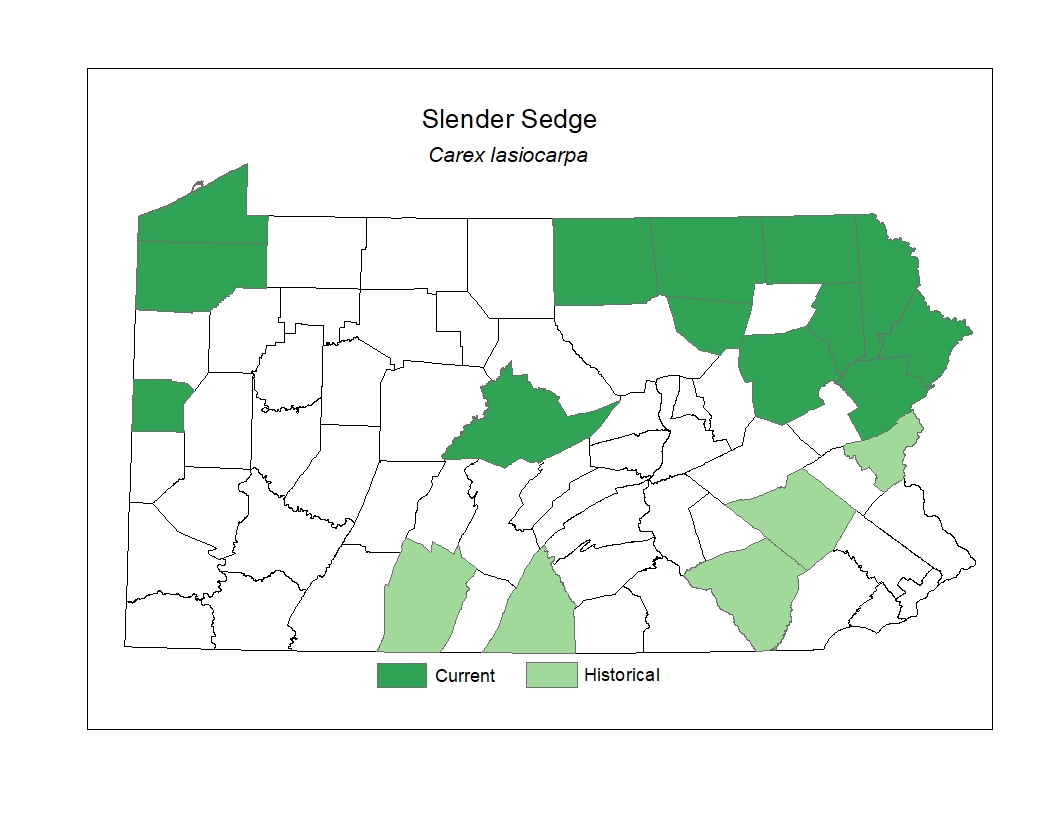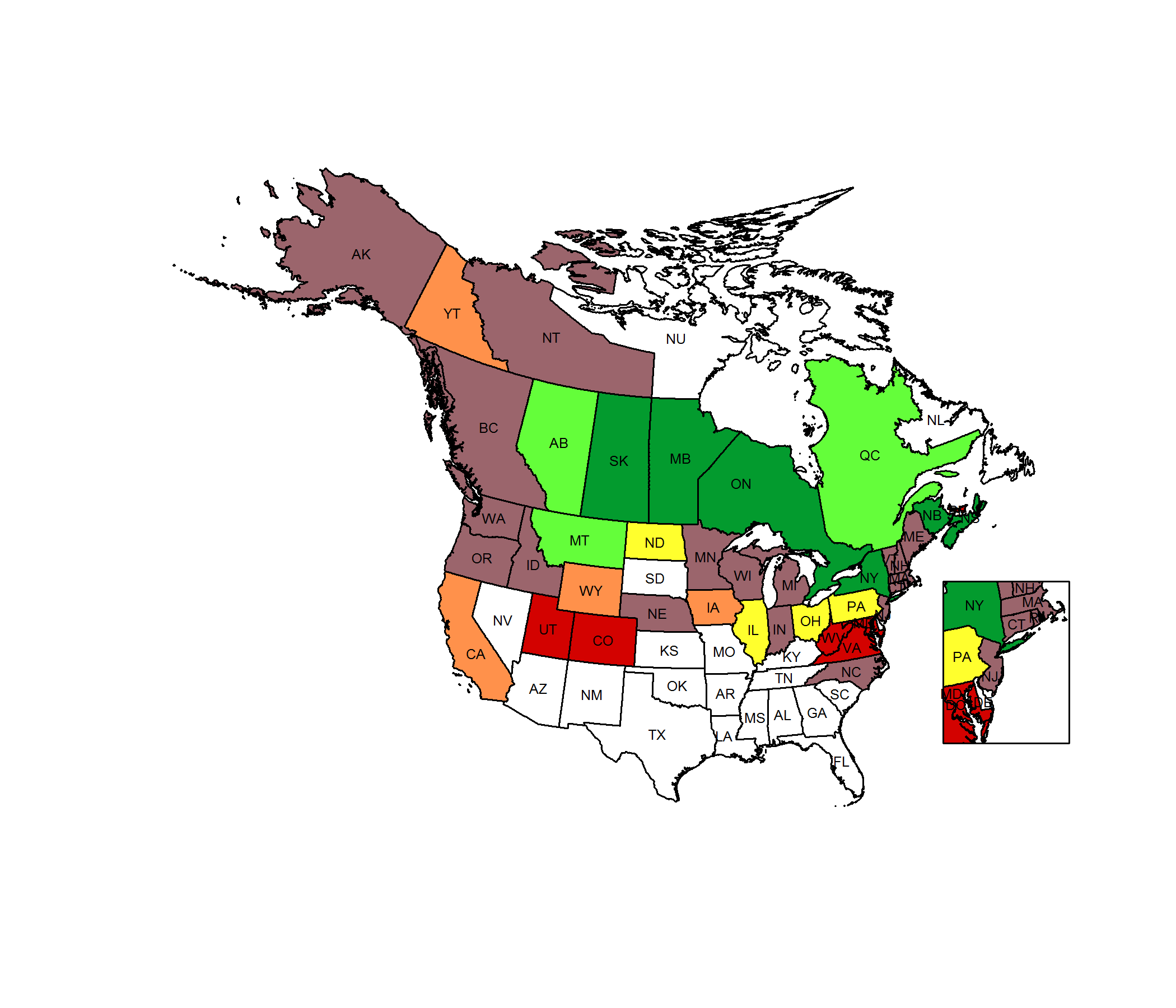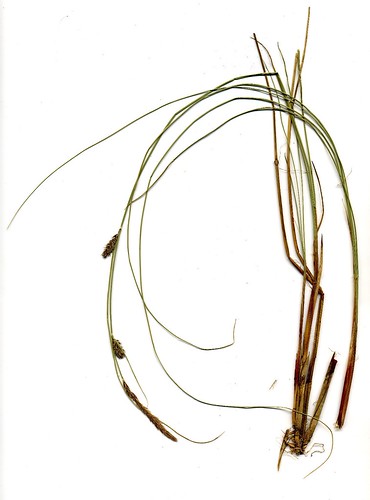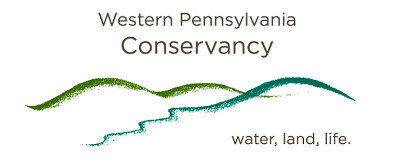 Species Factsheets
Species Factsheets
Carex lasiocarpa
Slender Sedge
State Status: Pennsylvania Rare (PR)
PBS Status: Pennsylvania Rare (PR)
Federal Status:
Global Rank: G5
![]() rank interpretation
rank interpretation
State Rank: S3
Description
Slender Sedge is a grass-like plant that forms patches in boggy places due to its wide-spreading underground stems, or rhizomes. The aerial stems are triangular in cross-section and may grow to 3 feet (1 m) in height (0.6 m). The leaves have sheathing bases and very narrow (1/16 inch, or 2 mm), folded, elongated blades that taper to extremely slender tips. The flowers, appearing from May to July, are minute and are grouped in male or female clusters, with 1 or 2 stalked and slender male clusters at the top of the stem and the 1 to 3 unstalked and broader female clusters farther down the stem. The female cluster consists of individual inflated sac-like structures, or perigynia, which are about 3.5 mm in length, hairy, with 2 slender teeth at the tip, and contain the three-sided fruit. This species often does not produce many flowering and fruiting stems, yet may still be identified by its rhizomatous growth habit and very narrow vegetative leaves with their very slender tips.
Rank Justification
Vulnerable in the nation or state due to a restricted range, relatively few populations (often 80 or fewer), recent and widespread declines, or other factors making it vulnerable to extirpation.
PABS
The PA Biological Survey (PABS) considers Slender Sedge to be a species of special concern, based on the moderate number of locations recently confirmed and the wetland habitat. It has a PA legal rarity status and a suggested rarity status of Rare.
Habitat
It grows in bogs, peaty wetlands, calcareous marshes, and shorelines.
Survey Dates
Fruits June - August
Distribution
Slender Sedge has a transcontinental range across the cooler regions of North America. In Pennsylvania, it can be considered a northerly species and has been documented historically mostly in the northern, particularly the northeastern, counties.

Management
The viability of populations of Slender Sedge and its habitat may be enhanced by creating buffers and protecting the natural hydrology around bogs and wetlands and controlling invasive species.
Conservation Status Map

NatureServe. 2017. NatureServe Explorer: An online encyclopedia of life [web application]. Version 7.1. NatureServe, Arlington, Virginia. Available https://explorer.natureserve.org.
- NatureServe. 2018. NatureServe Explorer: An online encyclopedia of life [web application]. Version 7.1. NatureServe, Arlington, Virginia. Available at https://www.natureserve.org/explorer
- Pennsylvania Natural Heritage Program. 2018.
- Rhoads, A.F. and W.M. Klein, Jr. 1993. The Vascular Flora of Pennsylvania. American Philosophical Society, Philadelphia, Pennsylvania. Rhoads, A.F. and T.A. Block.
- 2007. The Plants of Pennsylvania: An Illustrated Manual. 2nd edition. University of Pennsylvania Press, Philadelphia, Pennsylvania.







